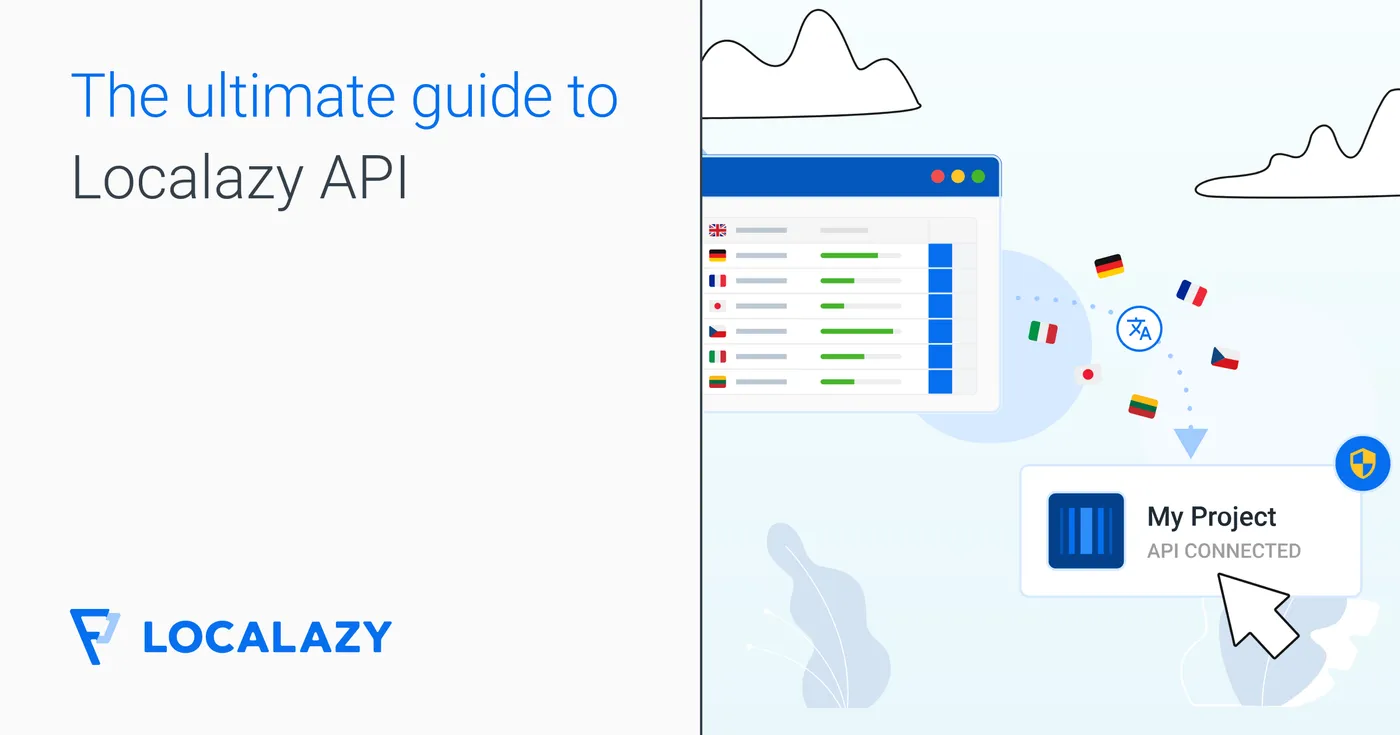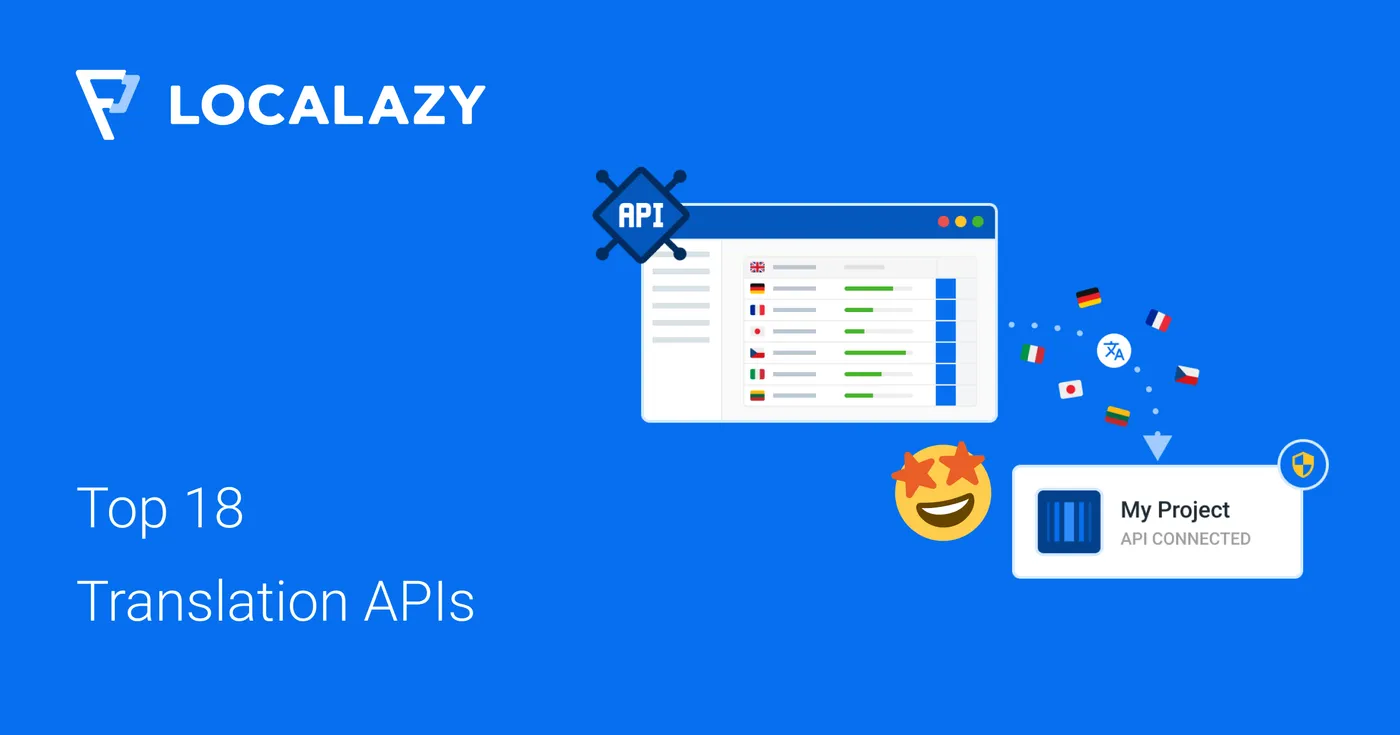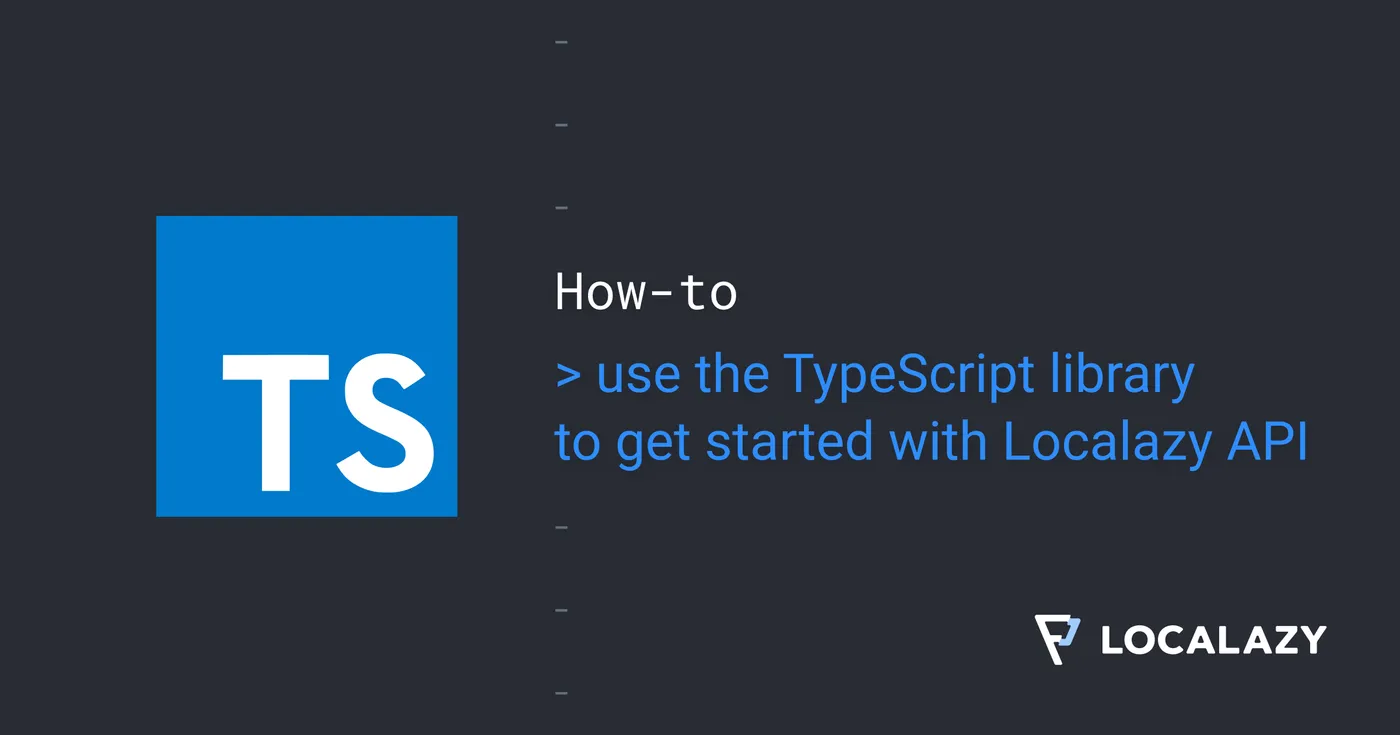Translation API
Automatically translate your software and content with the Localazy API and maximize your efficiency with programmatic translation project management.
📬 Translation API = Smart Workflows
Use the Localazy translation API to upload your content for localization from any source and manage your i18n project's workflows programmatically.
Follow our documentation to get started, grab your project token, and POST your content for translation now!


